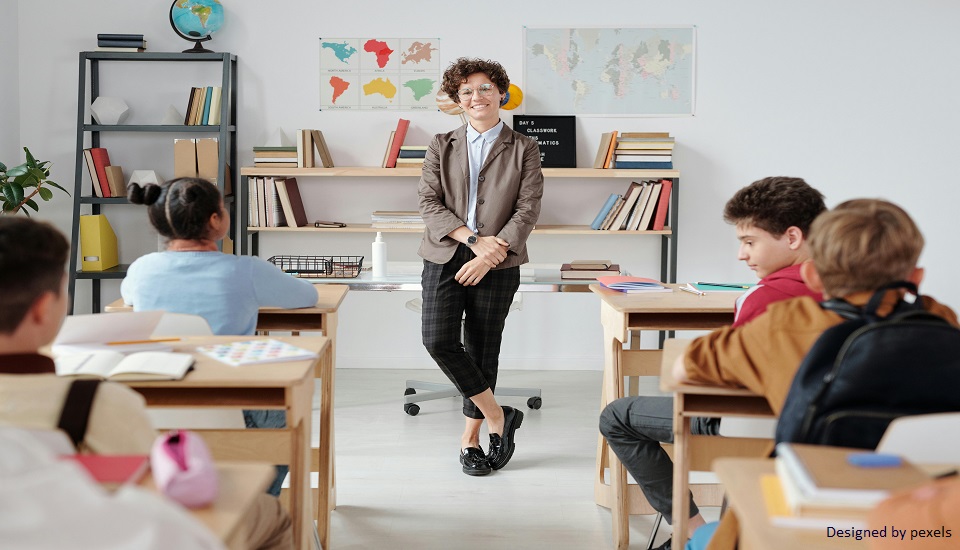How To Balance The Dual Role Of Teaching And Counselling Responsibilities
12th August 2024
The main responsibility of a school counselor is to assist kids in acquiring the social and intellectual skills necessary for success in all settings, including the classroom, the playground, and college. A teacher counselor can significantly influence kids' lives outside of the classroom. They provide emotional and psychological assistance to students, assisting them in coping with personal struggles, stress, and worry. The school counselor's job duties along with teaching responsibilities might be a lot to take in for some educators. Here is how to cope with them.
What Are The Dual Responsibilities Of A Teacher Counsellor?
As teacher counselors, they spend most of their school day teaching. Any counseling that takes place is after they have completed all of their coursework, which enables them to devote more of their attention to their job as a counselor.
Usually handling the first intake meetings, school counselors may assign cases to teacher counselors if the difficulties being presented are simple and not as serious. They may also receive referrals for cases from Year Heads, Form Teachers, and other administrators. For every case, they quickly examine the situation and compile background information. They then take the case to expert counselors if and at all they are unable to help.
Do you follow us on Social Media? If not, then you’re missing out on a lot of informative content. We regularly share upgraded educational content, tips, feedback, and more. Check us out by clicking the profiles here - Facebook / Twitter / LinkedIn / Pinterest / Instagram / YouTube
How Do Counsellors Engage With The School Community?
One of the most important parts of a teacher counselor’s job is interacting with parents. To assist their kids' social-emotional learning and growth, they collaborate closely with the parents. They also work in conjunction with general teachers to make sure the students receive comprehensive support. Their methods and interventions at home and in school will be in sync thanks to this concerted effort.
In collaboration with the counseling staff, they provide teachers with seminars that empower them to be an effective first line of response for kids' mental health. Basic listening skills are imparted, constructive teacher-student interactions are taught, and successful questioning techniques are shown to assist students work through their issues.
They also provide instructors with guidance on how to assess situations more effectively so they can decide whether to recommend pupils for help that may be outside their scope of expertise.
Teacher counselors are always available to offer psychological first aid in times of crisis or when a student exhibits acute discomfort. This entails giving children the support they need to stabilize their circumstances and control their emotions while making sure they get the care and attention they require during these trying moments.
What Are The Challenges Faced By Teacher Counsellors?
Here are some of the challenges that might come your way if you are delivering the roles of both a teacher and counselor:
1. Role Conflict
Teachers have to uphold discipline and enforce regulations, which occasionally makes them appear severe or authoritarian. A counselor, on the other hand, works hard to create a compassionate and encouraging atmosphere where students feel comfortable talking about their problems.
Teaching demands impartiality as well as treating each student equally and equitably. But as a counselor, standing up for the needs of specific children can occasionally clash with the dynamics of the classroom. To control expectations and uphold justice, balancing these responsibilities necessitates thoughtful thought and transparent communication.
2. Trust Issues
When my pupils predominantly view me as an authoritative figure in the classroom, it might be difficult to develop trust. Communication obstacles may arise from this dualism.
To ensure kids that their counseling sessions are a secure area apart from the classroom, it is imperative to establish clear boundaries and consistent conduct.
3. Mixed Signals
Teacher counselors may give students conflicting instructions about their job and might draw lines of communication with them. For example, a student may be reluctant to come to class to talk about a personal matter because they are not sure if they are there to serve as a counselor or a teacher.
This uncertainty can be reduced by being clear about a teacher’s availability for counseling, including their hours and location.
4. Role Switching
Students may find it perplexing when teachers and counselors switch positions often. They can find it difficult to balance their perceptions of a helpful counselor with those of a severe instructor.
Ensuring that students comprehend the unique characteristics and limitations of every function is crucial. This uncertainty may be reduced by reminding them regularly that they are available to support them in both roles.
Be The Best Of Both Worlds
A school teacher counselor's job is to assist in removing barriers that keep kids from realizing their full potential. Above all, they provide students with the knowledge, abilities, and resources they need to lay the groundwork for a prosperous and fruitful life. if you want to take up the job role of a teacher counselor, ensure that you have a Diploma in Counselling Course for Teachers to be aware of the nitty-gritty the position demands.
We believe education should be accessible to everyone. That’s why we don’t charge for our blogs. Find the right course that will help you in your career. Contact us at - 1800–212–6400. You can mail us at act@asiancollegeofteachers.com.
Written By : Sanjana